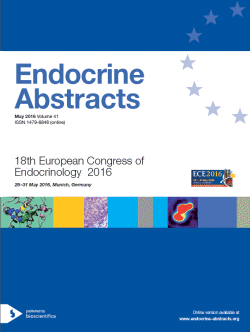Searchable abstracts of presentations at key conferences in endocrinology
DEBATE
The use of NSAIDs in endocrine cancers: the case of Celecoxib
ea0041d1.1 | The use of NSAIDs in endocrine cancers: the case of Celecoxib | ECE2016
Abstract unavailable....
ea0041d1.2 | The use of NSAIDs in endocrine cancers: the case of Celecoxib | ECE2016
The use of NSAIDs in endocrine cancers: the case of Celecoxib: FOR
NSAIDs inhibit cyclooxygenase activity and thereby reduce prostaglandin synthesis. Two genetic isoforms of COX have been characterized: COX 1 constituvely produced in most tissues and COX 2 is not expressed in most normal tissues which is induced by pro inflammatory and mitogenic stimuli. Chronic inflammation and oxidative stress are key players in COX2 dependent carcinogenesis and it is important to point out that this type of inflammation has been associated with cancer in d...
ea0041d1.3 | The use of NSAIDs in endocrine cancers: the case of Celecoxib | ECE2016
The use of NSAIDs in endocrine cancers: the case of Celecoxib AGAINST
The antitumor properties of non-steroidal anti-inflammatory drugs (NSAIDs), with respect to both cancer prevention and therapy, have raised considerable interest in the last two decades, leading to well consolidated evidences in gastrointestinal cancers, especially colorectal cancer. NSAID action has been proposed to occur through two independent modes: a COX-dependent one, mainly involving the inhibition of COX-2-mediated PGE2 production, and a COX-independent one, mainly inv...




